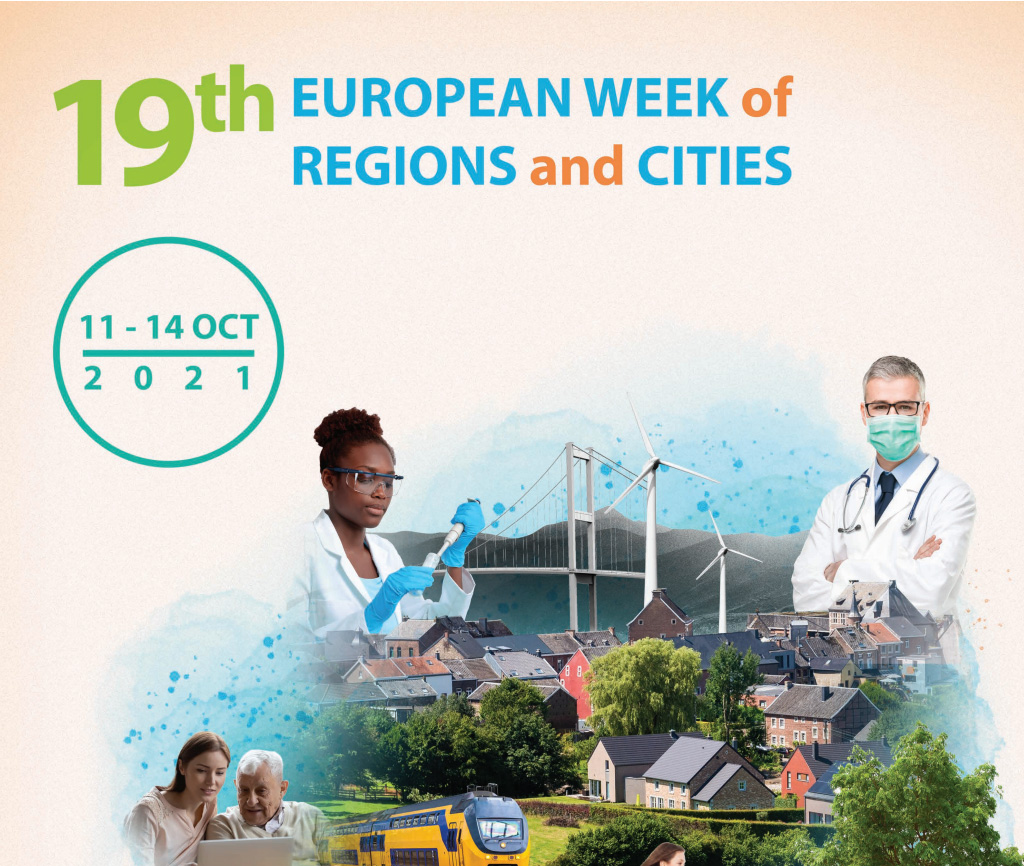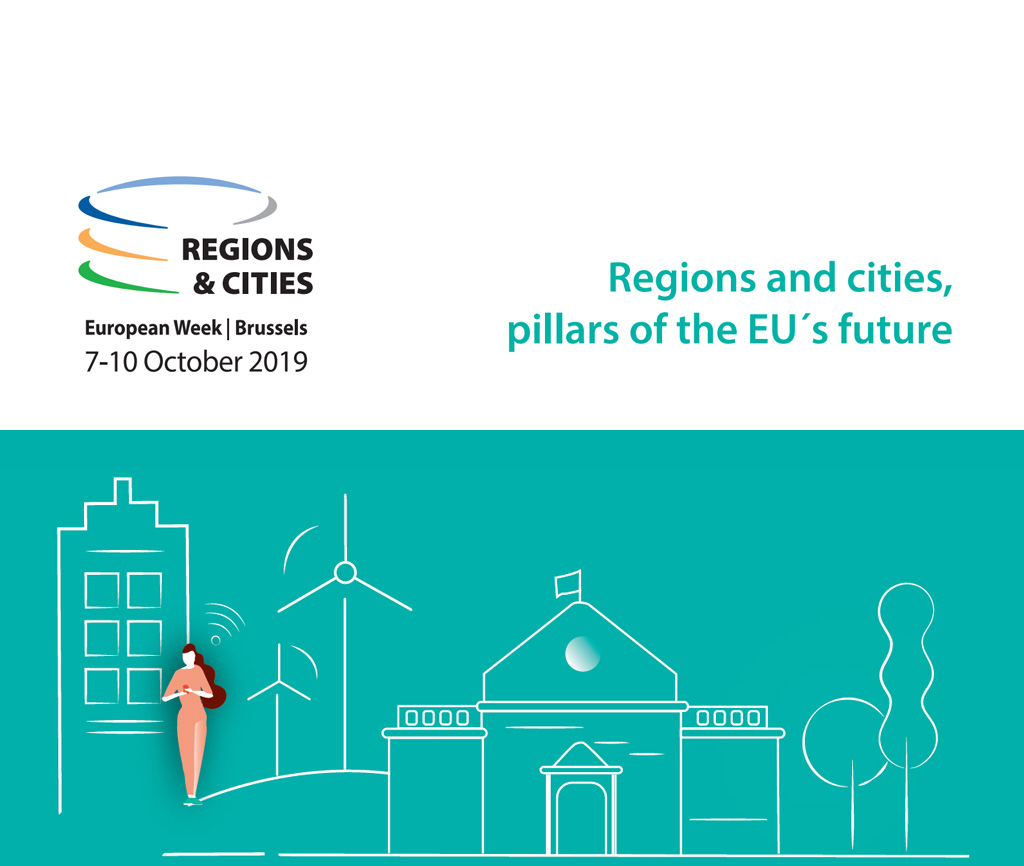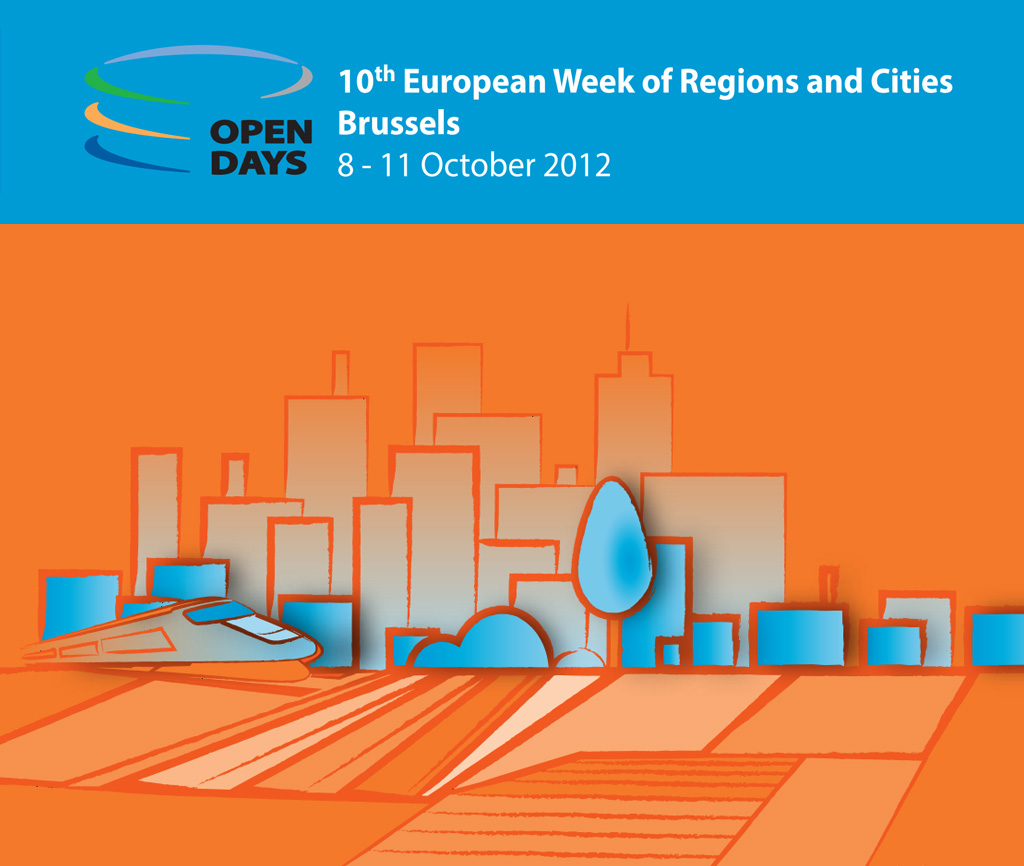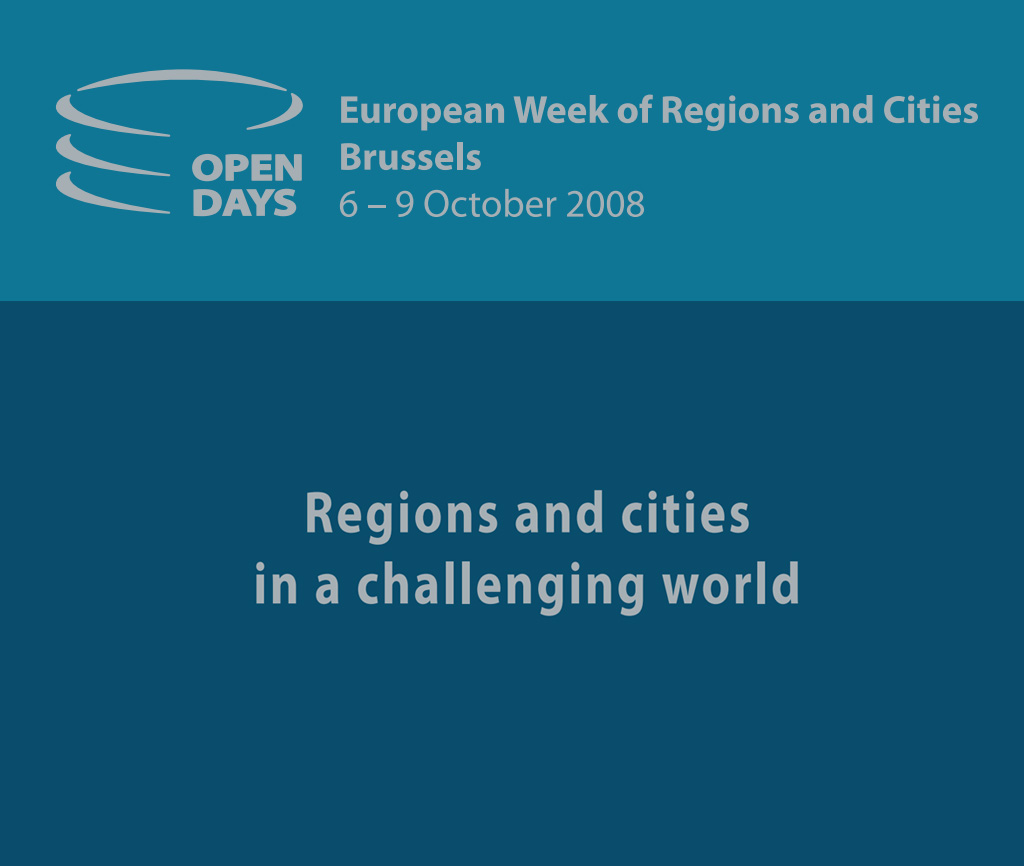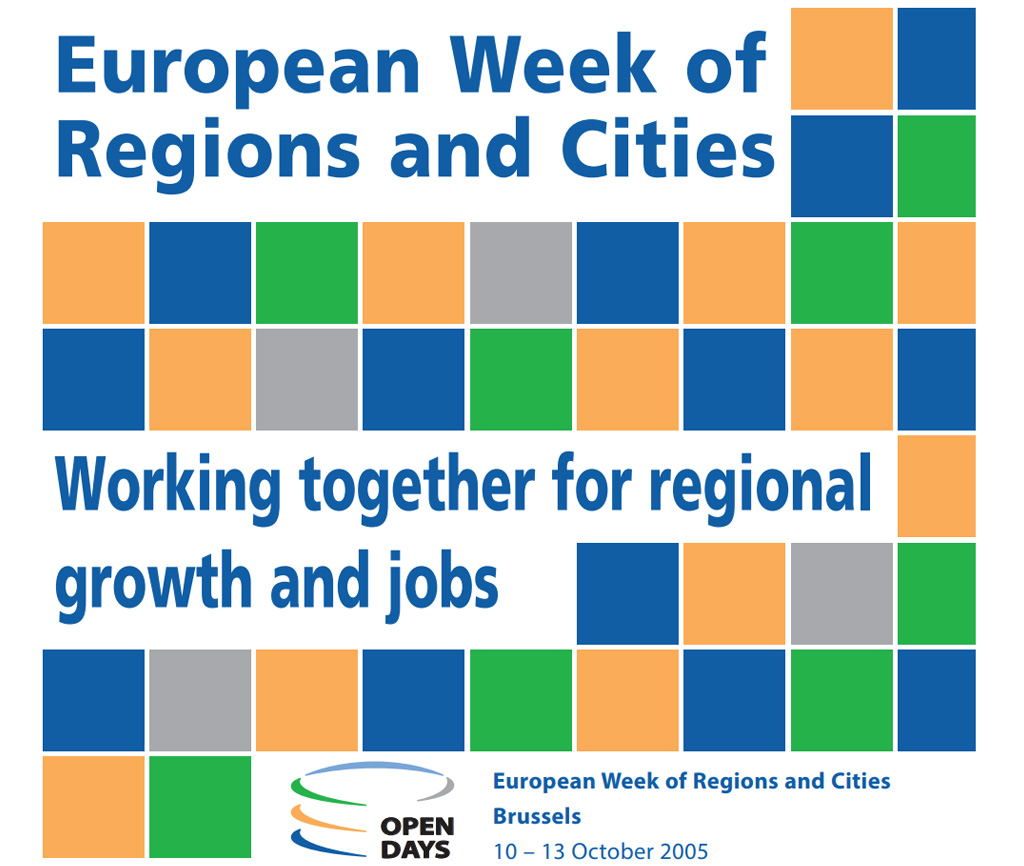- 2024Empowering Communities
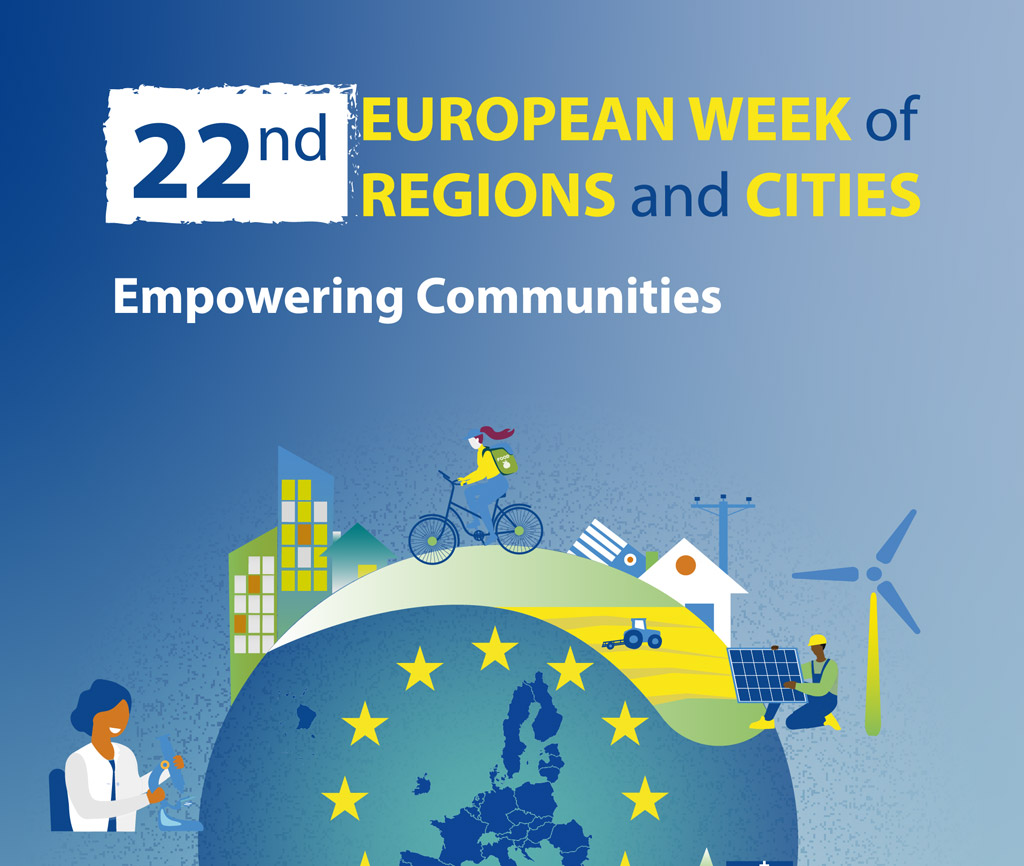
Under the motto “Empowering communities”, the #EURegionsWeek 2024 featured 156 sessions, an exhibition with 31 stands and 9 regional tastings, spread across 7 venues in Brussels. The 4 themes of the edition were:
- Competitiveness and Convergence: two sides of the same coin
- Regions Strengthening European Democracy
- Smart and Sustainable Growth for Regions
- Regions got talent
The different themes were addressed during sessions and activities organised by external partners, but also via EU high-level thematic sessions. Two prize ceremonies completed the event: the REGIOSTARS Awards, the Megalizzi-Niedzielski prize.
- 2023Thriving Regions, Stronger Europe
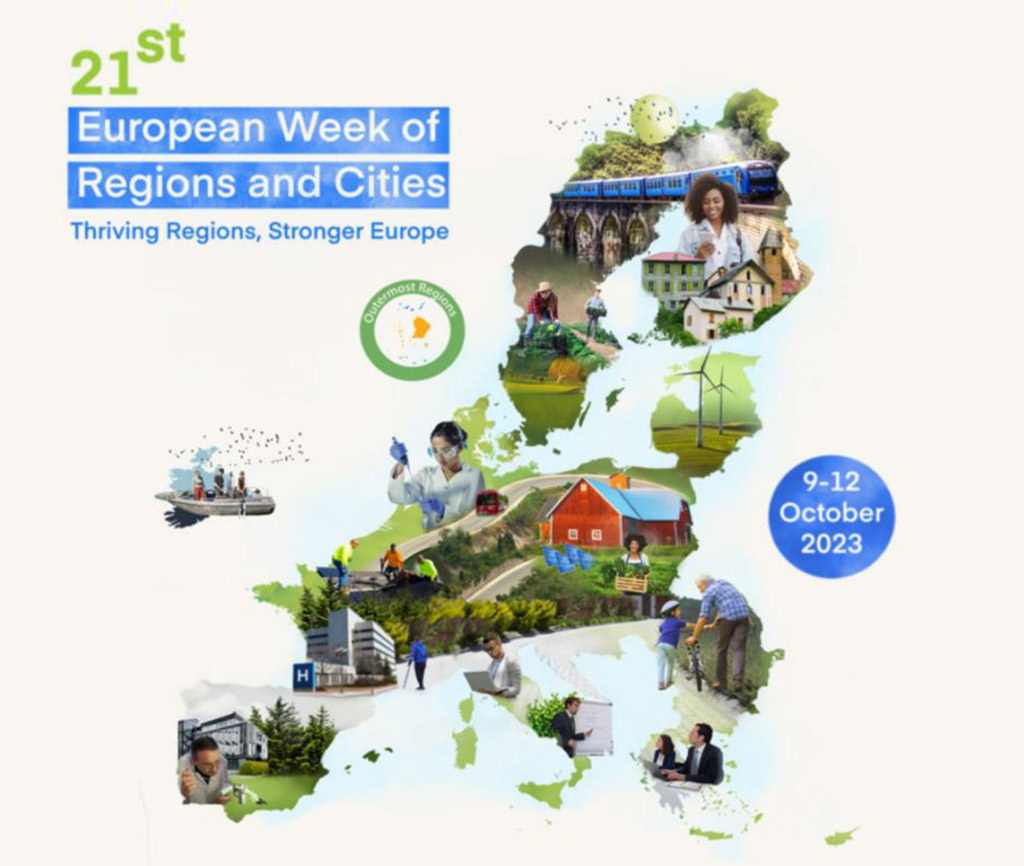
The event was organised around six themes, focusing on territorial challenges and solutions:
- Regions in post-industrial transition
- Retaining talent for regional growth
- Small and mid-size urban centres driving growth
- Breaking barriers to cross-border cooperation
- Local energy shift for security and sustainability
- Promoting social innovation
Along these six themes, 300 sessions (workshops, participatory labs, talks, etc.) were organised by the partners of the event.
In addition, this edition introduced 6 High-Level sessions, organised by the Directorate-General for Regional and Urban Policy of the European Commission, each of which covered one of the 6 above-mentioned themes. These High-Level sessions not only hosted VIP speakers who outlined the broader challenges and policy implications regional and European level, but also local practitioners who identified sustainable solutions supported by Cohesion Policy and shared best practices and lessons learnt to improve the life of European citizens.
- 2022New challenges for Europe's cohesion: green transition, digital transition, territorial cohesion
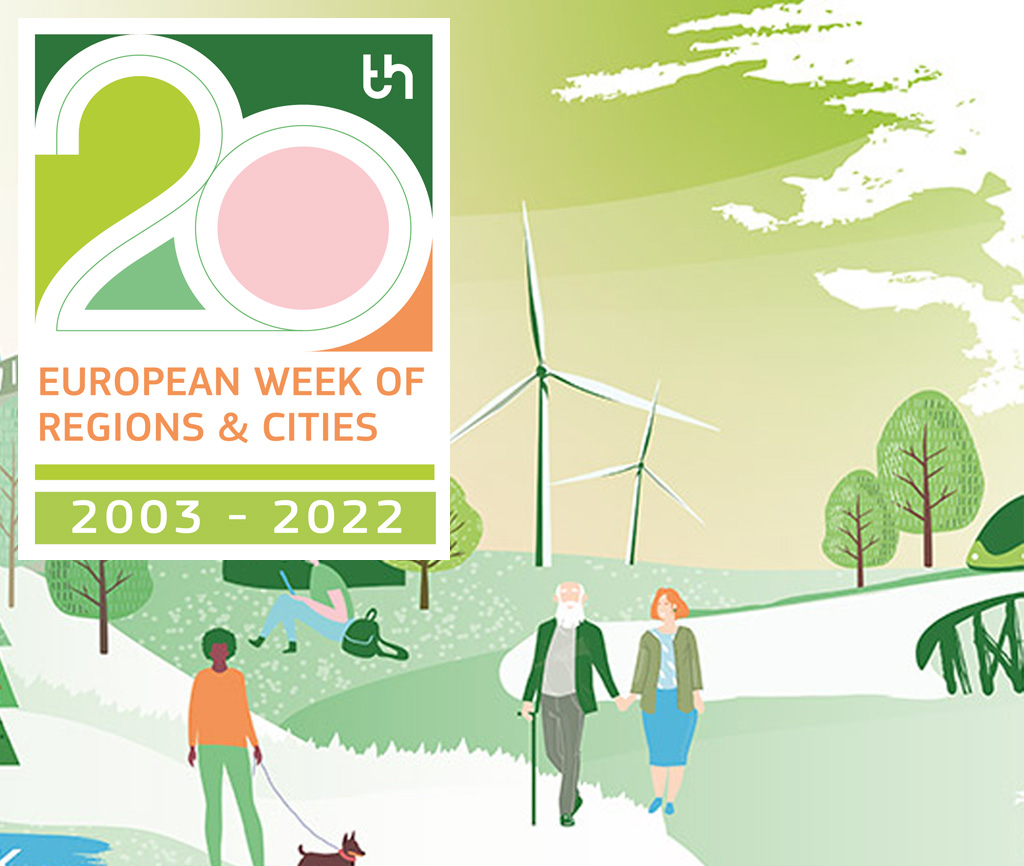
Main initiatives adopted in 2022:
- Cohesion Policy funds 2014-2020 and REACT-EU are amended to support sectors and regions critically affected by the crisis;
- Recovery and Resilience Facility: mitigate the economic and social impact of the coronavirus pandemic and make European economies more sustainable, resilient and better prepared for the challenges and opportunities of the green and digital transitions
- REPower EU Plan: the Commission’s response to the socio-economic hardships and global energy market disruption caused by Russia's invasion of Ukraine.
- 2021Europe’s response to the health, social and economic challenges
- 2020Green Europe • Cohesion and Cooperation • Empowering Citizens
30th anniversary of European Territorial Cooperation (Interreg)
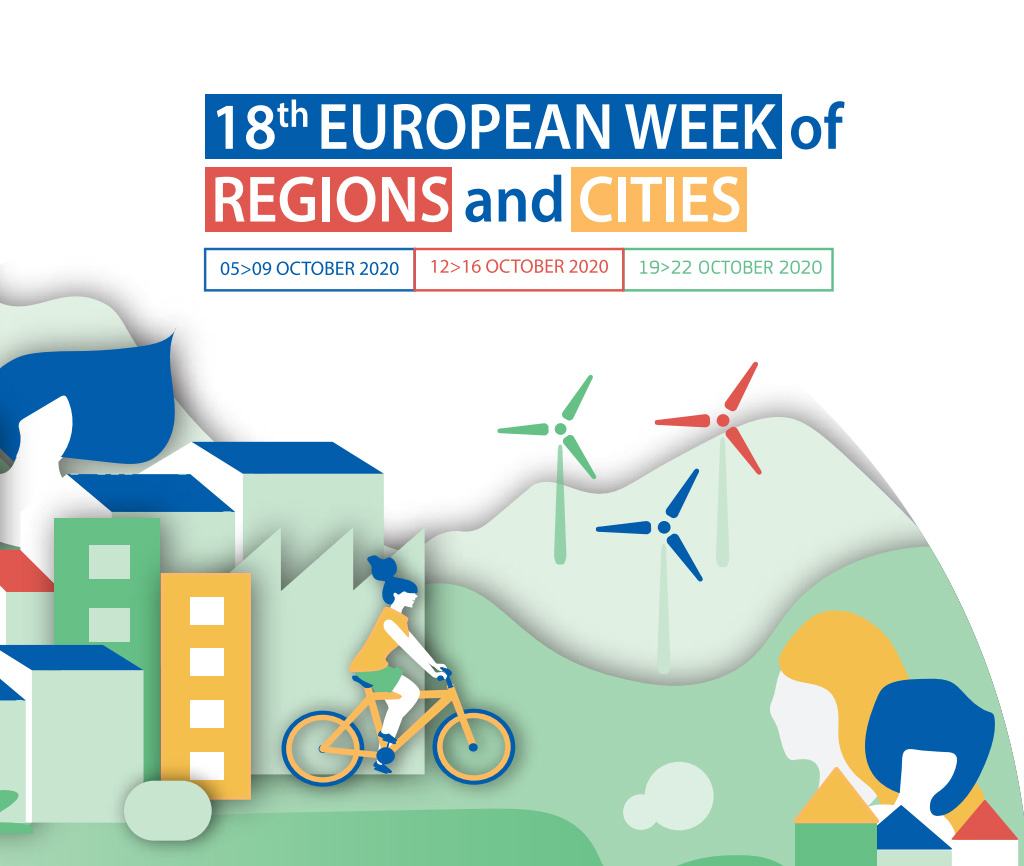
Subsequently, the REACT-EU package (Recovery Assistance for Cohesion and the Territories of Europe) extends the crisis response and provides a bridge to the long-term recovery plan, through a € 47 billion top-up to funding still available under 2014-2020 programmes.
EU leaders agree on the long-term budget for 2021-2027 and the recovery plan. The Just Transition Fund is created to support the most vulnerable carbon intensive regions in their transition towards a climate-neutral economy.
- 2018For a strong EU cohesion policy beyond 2020 - 140 regions and cities
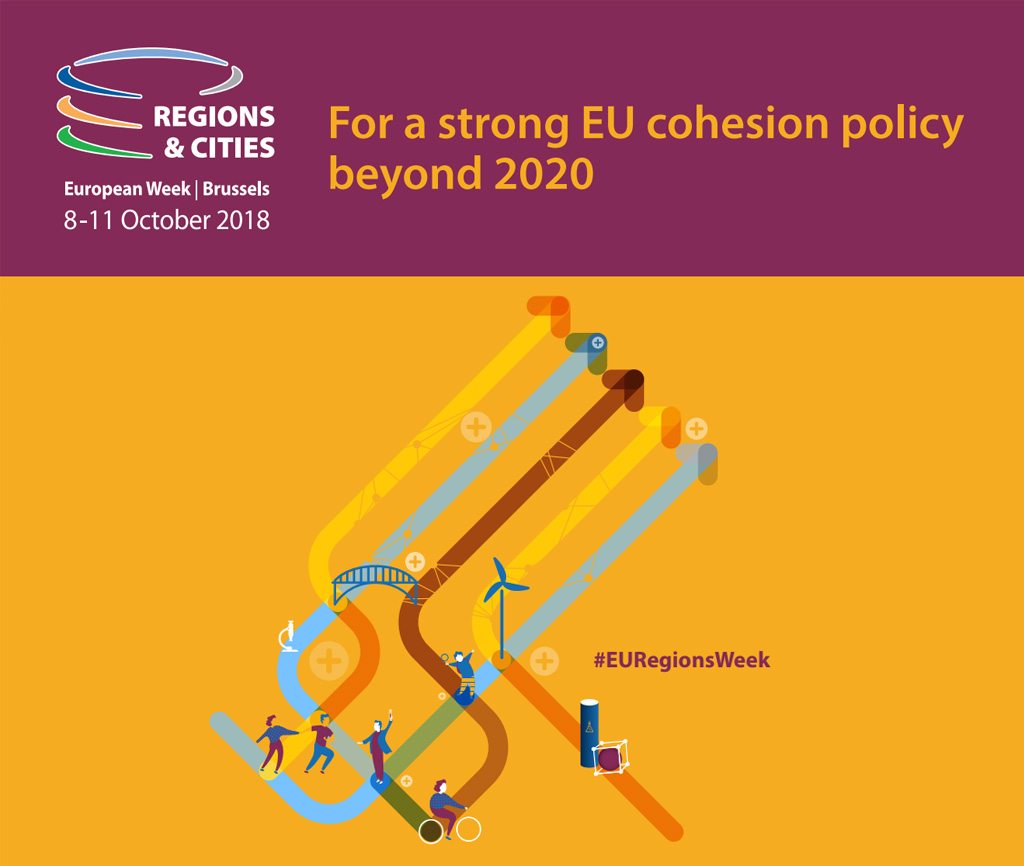
The European Commission proposes the 2021-2027 multiannual financial framework (MFF) 2021-27, the EU's long-term budget, formally marking the start of the MFF negotiations.
Future priorities of the European Union for 2021-2027: understanding and managing the territorial impacts of globalisation and digital transformation, regional dimension of climate change and energy transition, while taking into account youth involvement, integration of migrants and social exclusion.
- 2017"Regions and cities working for a better future" – 187 partner regions and cities
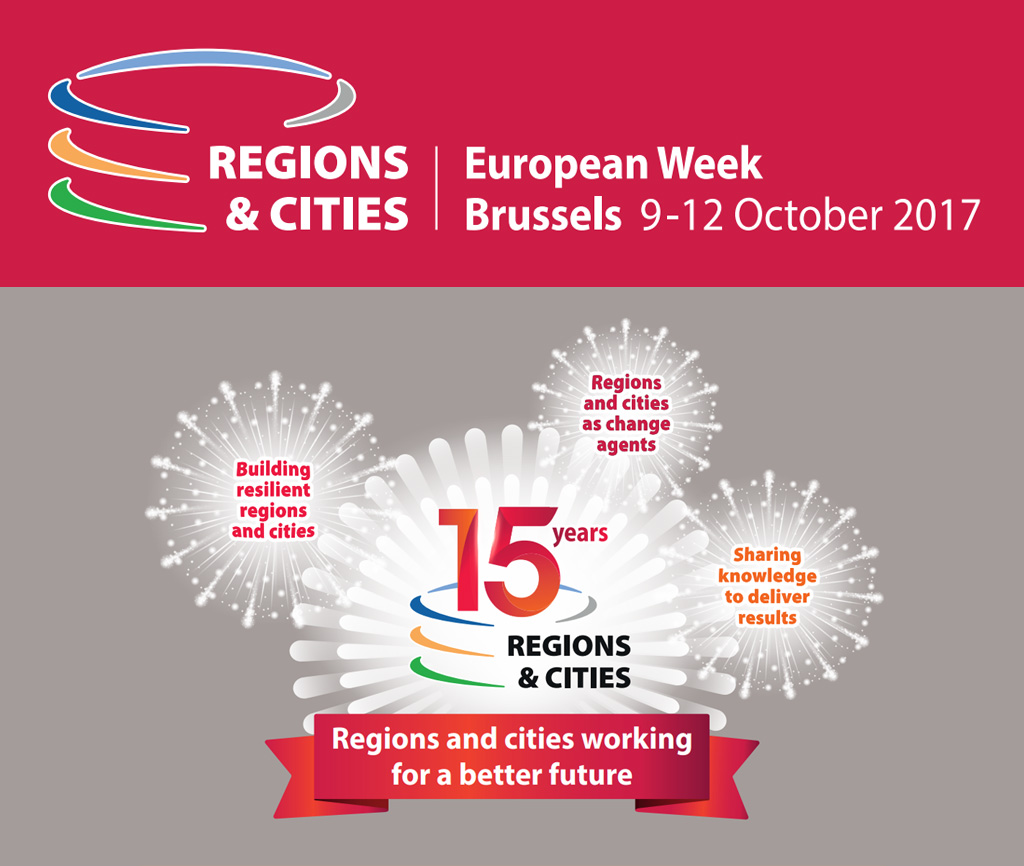
Regions and cities as change agents: adaptations to EU regional and urban policy for the next 5-10 years on one hand, and encourage, more globally, reflection on the EU from the perspective of cities and regions
Sharing knowledge to deliver results: implementing programmes supported by the European Structural and Investments funds.
The 7th Cohesion Report is published by the European Commission. The document alerts that, following the double recession of 2008 and 2011, regional disparities are narrowing again and . several regions with a GDP per head close to the EU average seem stuck in a “middle-income trap”.
The European Commission issues a strategy for and with the EU’s outermost regions’ to better address their specific needs.
The European Committee of the Regions, together with the leading European associations of cities and regions, launches the #CohesionAlliance for a strong Cohesion Policy after 2020.
- 2016"Regions and Cities for sustainable and inclusive growth - 187 regions & cities
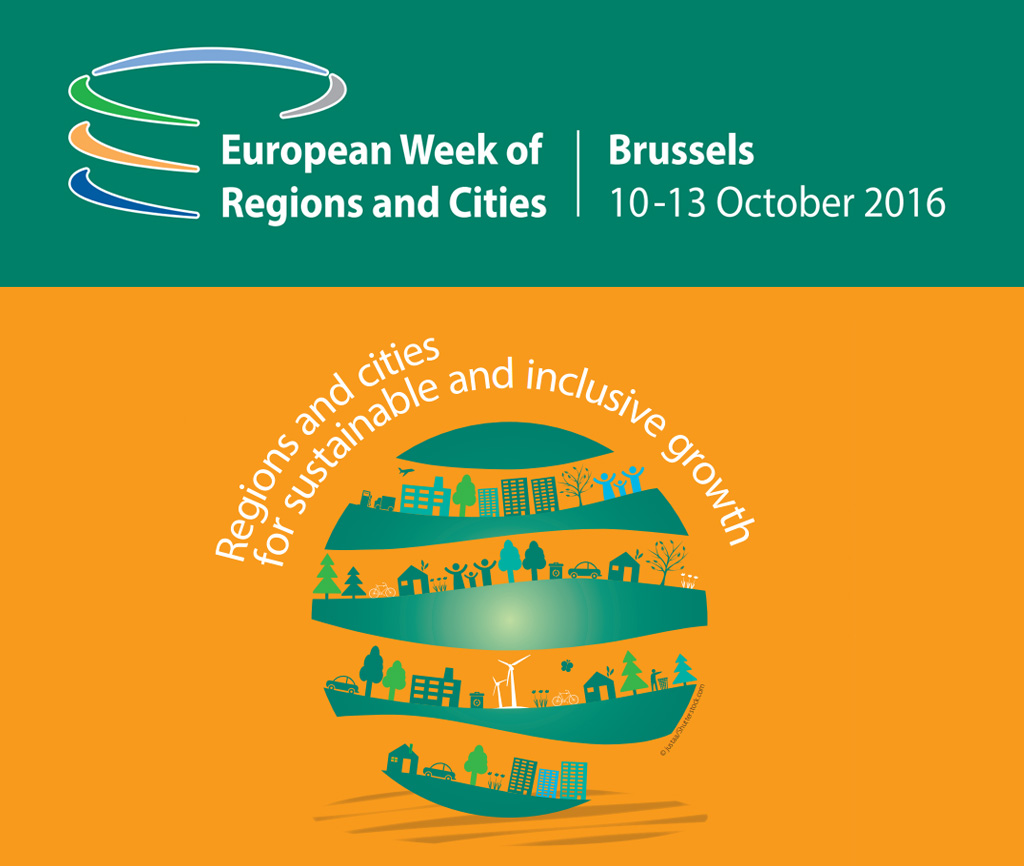
The Pact of Amsterdam establishes the Urban Agenda for the EU. It focuses on the three pillars of EU policy making and implementation: Better Regulation, Better Funding and Better Knowledge.
- 2015"Europe's regions and cities: Partners for investment and growth" – 177 regions and cities
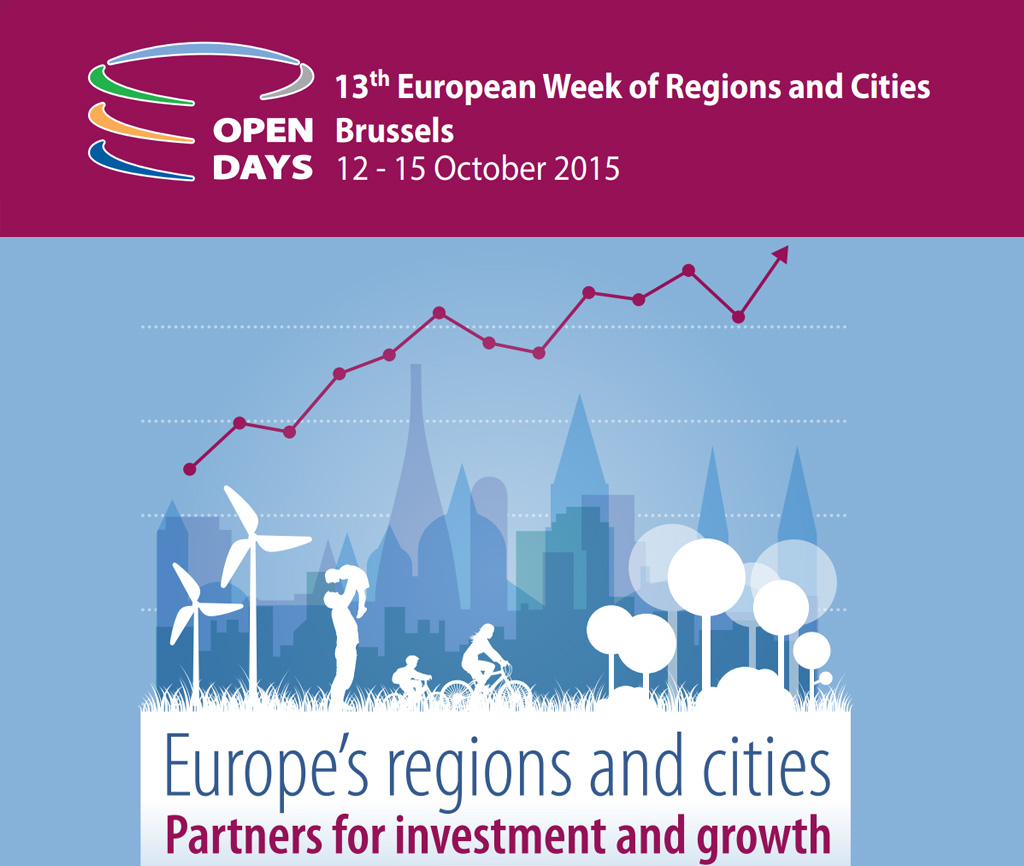
Three major themes: 1) Modernising Europe: The regions in the Energy Union and the Single Digital Market; 2) Regions open for business: SME development, innovation and job creation; 3) Places and spaces: Urban and rural development, urban-rural integration.
- 2014"Growing together – Smart investment for people" – 192 regions and cities
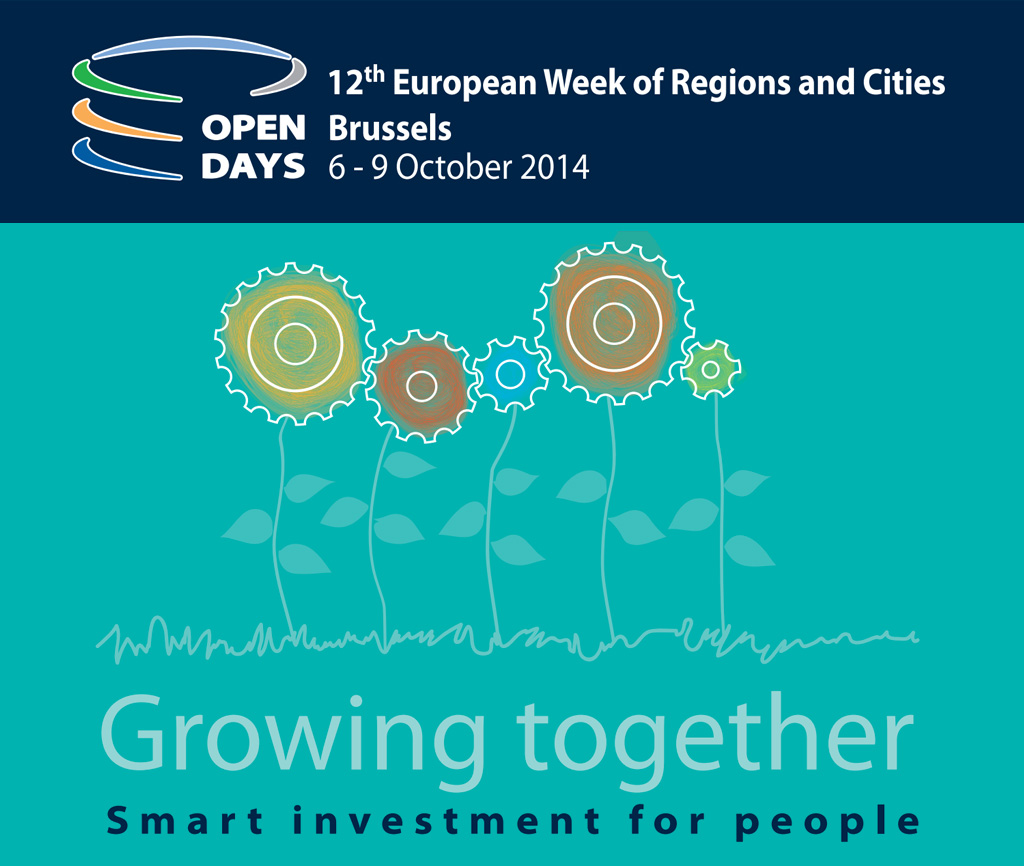
Beginning of the 2014-2020 programming period, which allocates over € 350 billion to Cohesion Policy, i.e. 32.5% of the overall EU budget.
Stronger focus on simplification, growth and jobs. Key investments areas are research and innovation – A Smart Europe, environmental structure and climate change – A Sustainable Europe. Greater emphasis on social inclusion and tackling youth unemployment.
For the first time in the history of Cohesion Policy, a specific regulation covers European Territorial Cooperation actions, with a budget of circa 10 billion euro.
- 2013"Europe's Regions and Cities taking off for 2020" – 200 regions and cities
- 2011Investing in Europe's future
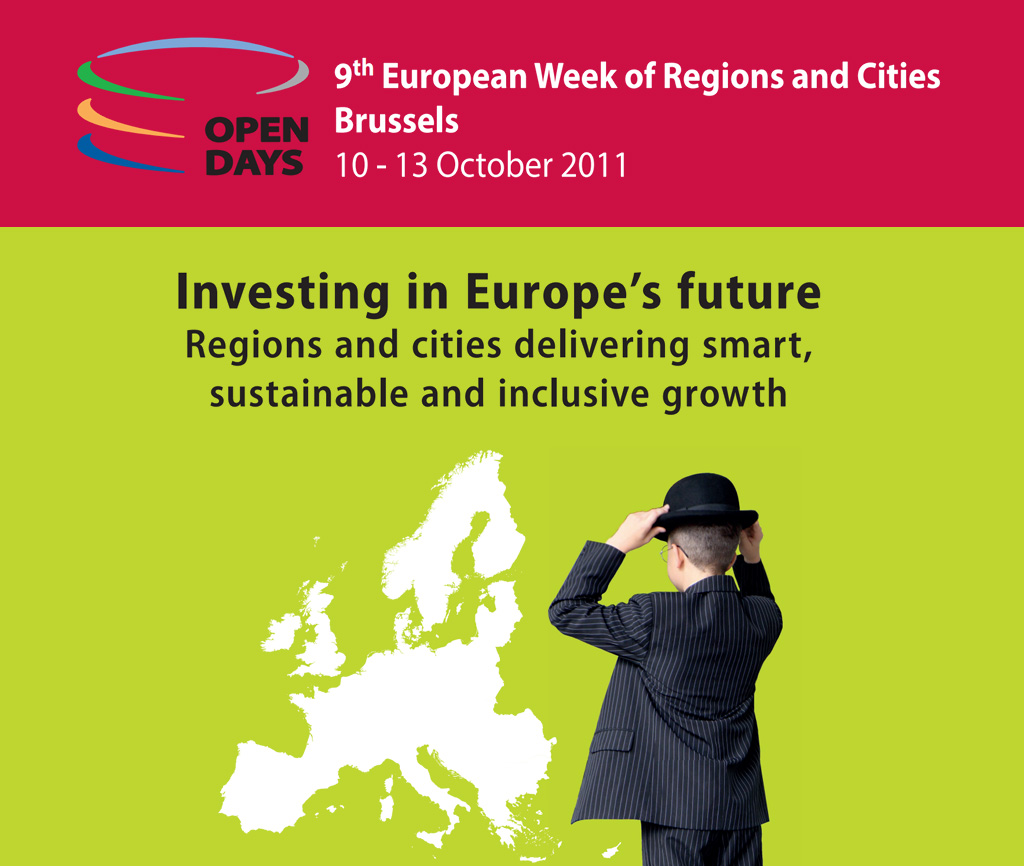
October 2011 is a crucial moment, with the European Commission tabling the Financial Framework proposal for 2014-2020 just a week before the Open Days, which allows a direct political debate to take place between EU Commissioners, CoR members and MEPs.
- 2010Europe 2020: competitiveness, cooperation and cohesion
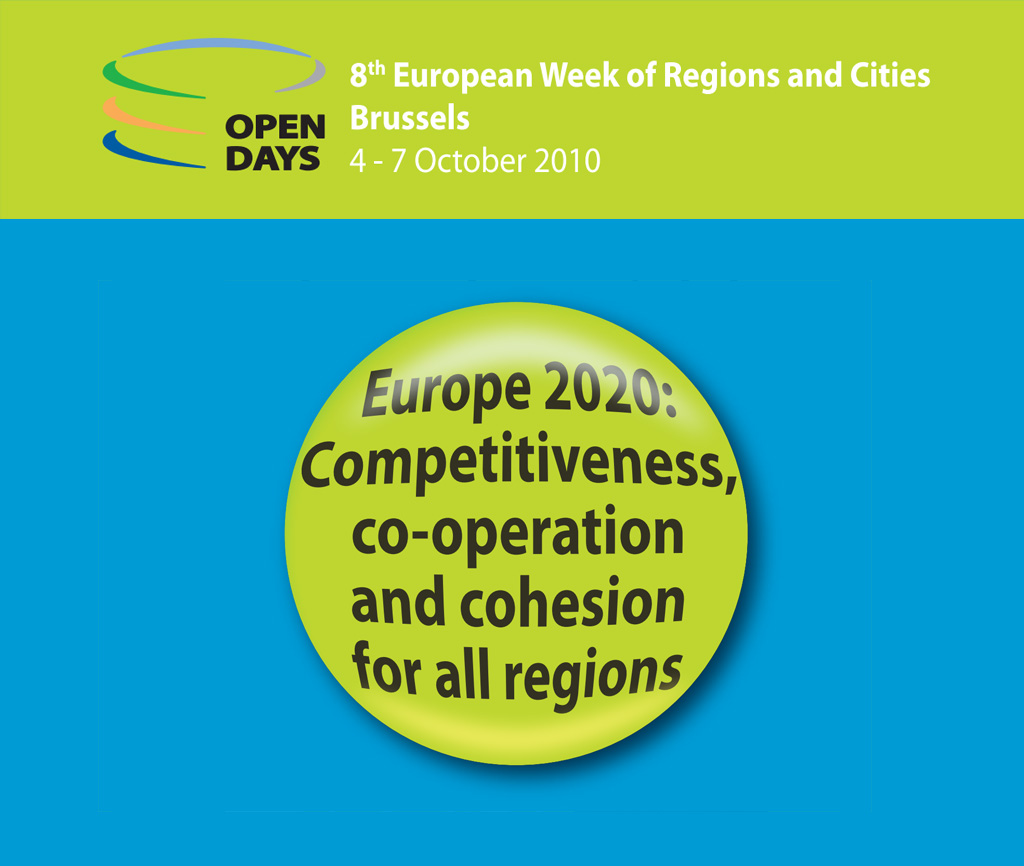
The 2010 of the EURegionsWeek saw 245 regions and cities gathering together to discuss about the EU 2020 agenda. It focused on the new role assigned to local and regional authorities under the Lisbon Treaty and the debate on the EU budget post-2013. The blueprint for the post-2013 Structural Funds confirmed that cohesion was an issue for all Europe's regions and cities. OPEN DAYS 2010 took place on the eve of the presentation of the 5th Cohesion Report, which included the Commission's first orientations on cohesion policy post-2013. The views expressed during the OPEN DAYS provided input for shaping the future cohesion policy, complementing the public consultation launched on 11 November 2010.
- 2009Global challenges – European solutions
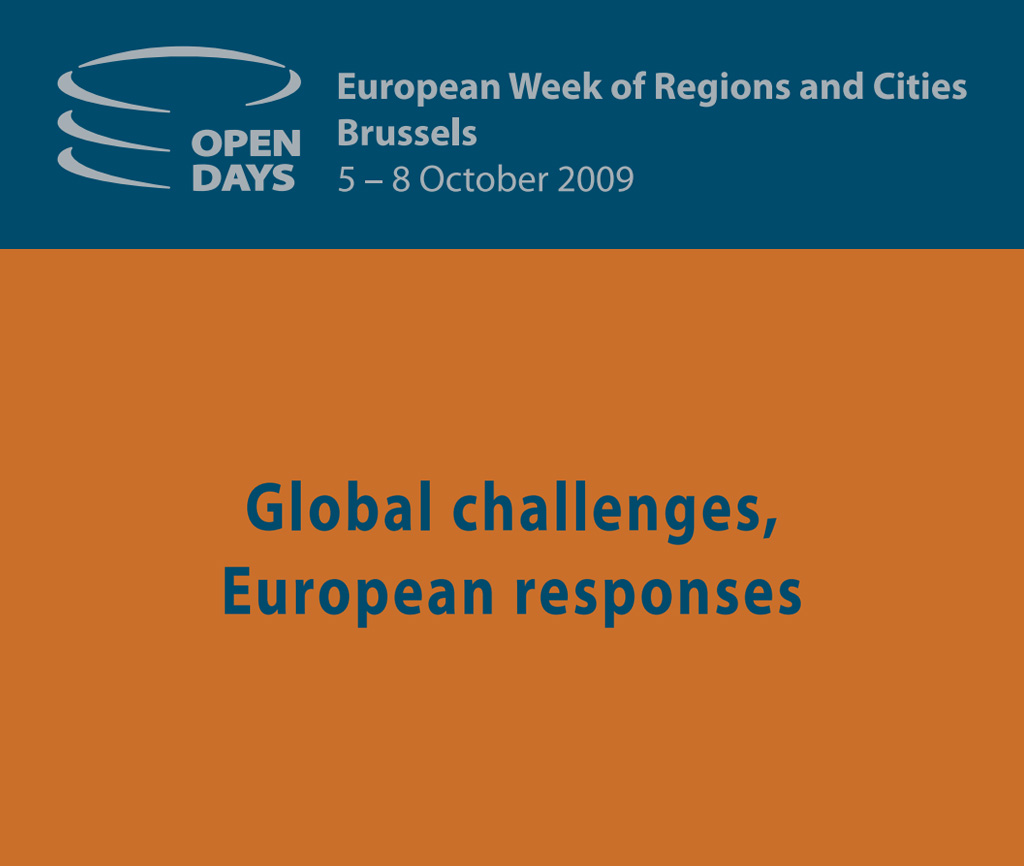
The Lisbon Treaty enters into force, introducing territorial cohesion as a new objective of the Union, alongside economic and social cohesion. The Treaty gives also enhanced political and institutional recognition to the Committee of the Regions.
The Open Days introduces a thematic strand of territorial cooperation and working together across borders, as the European Commission adopted the EU Strategy for the Baltic Sea Region,
Debate on the EU 2020 Agenda: starting on how Europe's regions and cities responded to the global economic crisis, the Open Days launches a discussion on how 2014-2020 cohesion policy programmes could be best used to kick-start local and regional economies.
- 2008"Regions and cities in a challenging world" – 216 regions and cities, 22 regional partnerships.
- 2007"Making it happen: Regions deliver growth and jobs" - 212 regions and cities, 24 regional partnerships

Bulgaria and Romania join the European Union
Cohesion Policy 2007-2013: resources focus on poorest Member States and regions, enabling them to both catch up with the rest of Europe and flourish in the Internal Market.
European Groupings on Territorial Cooperation (EGTCs) are set up to facilitate and promote cross-border, transnational and interregional cooperation.
- 2006Investing in Europe’s Regions and Cities Public and Private Partners for Growth and Jobs -135 regions and cities participating
- 2004First edition co-organised by the CoR and DG REGIO
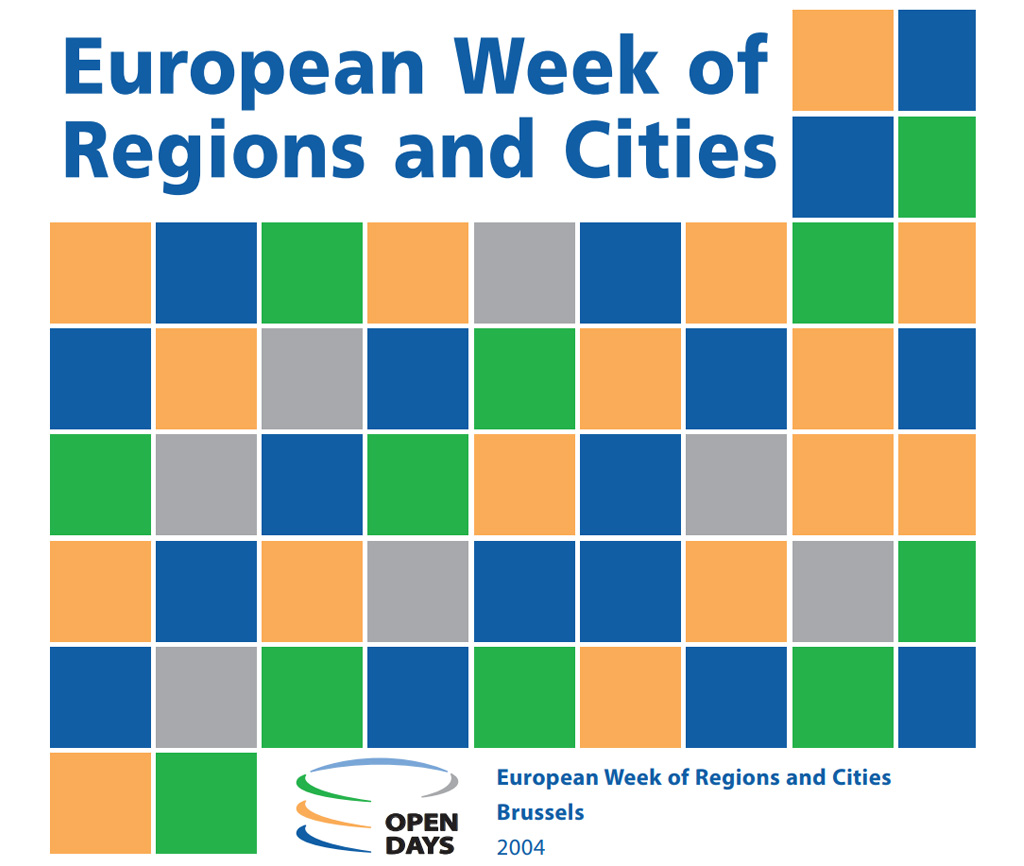
First edition of the Open Days that is co-organised by the Committee of the Regions and the European Commission (DG REGIO), with 62 Brussels-based regional offices and the European Parliament hosting the closing session.
Ten new countries join the EU (EU population + 20%, GDP + 5%). € 213 billion were already available for the 15 existing countries in 2000-2006 Cohesion Policy, € 22 billion were added to support the new member countries in 2004-2006.
- 2003First edition of the Open Days

10 regional offices open their doors following the invitation from the European Committee of the Regions
The Lisbon Strategy gives a shift to the EU's priorities towards growth, jobs and innovation. Cohesion Policy re-orients its priorities to support this change.


